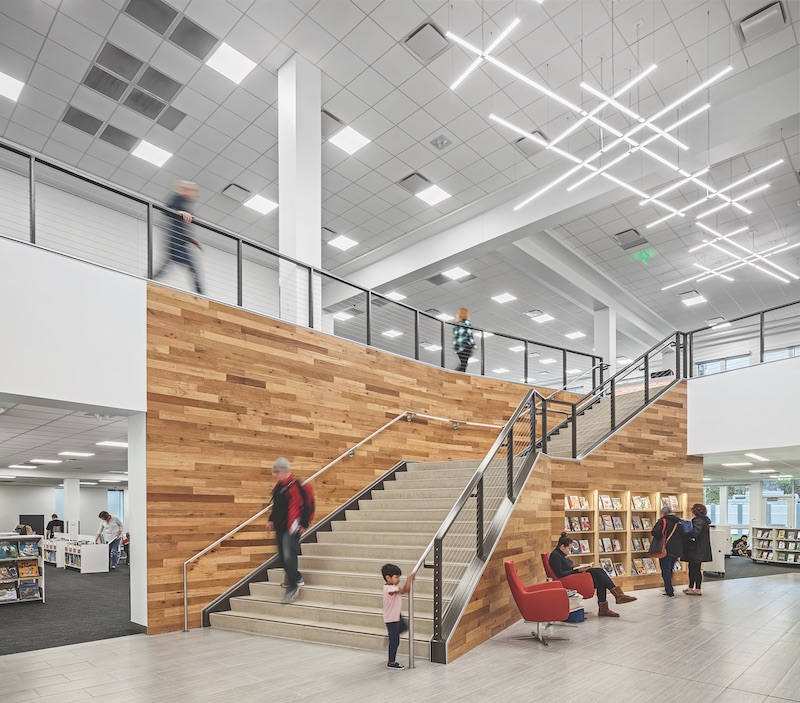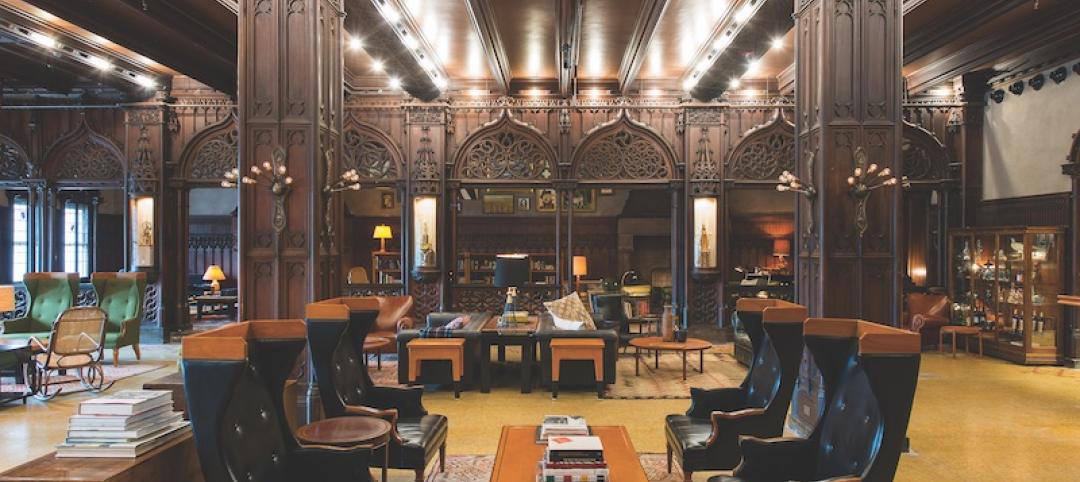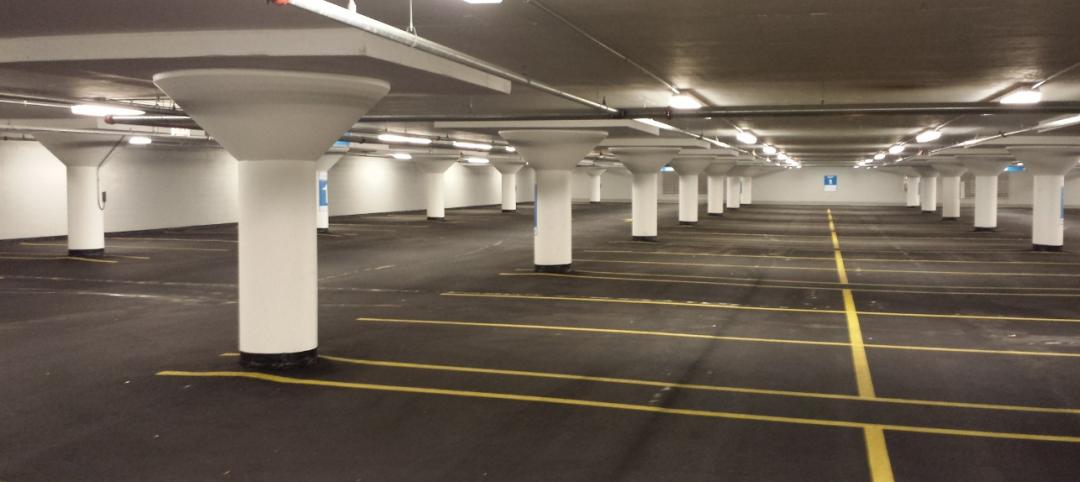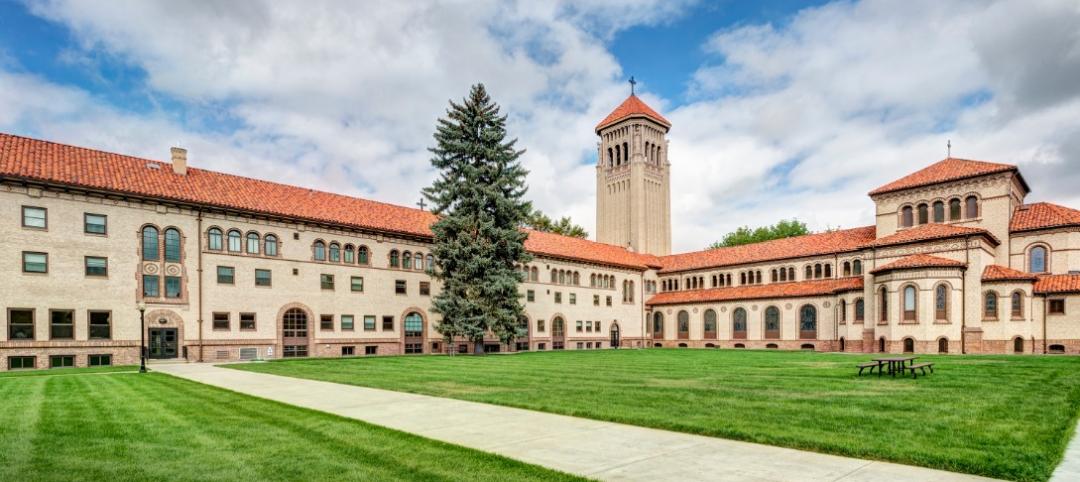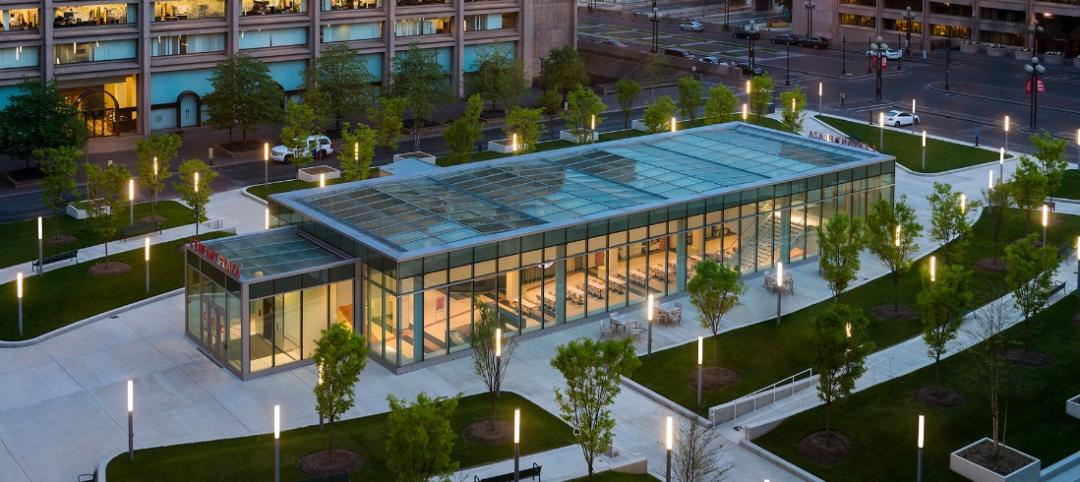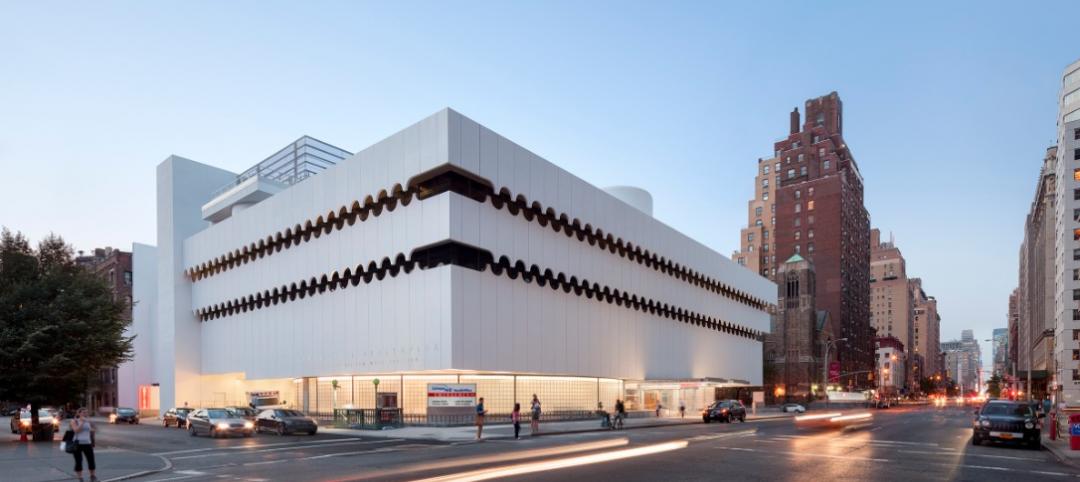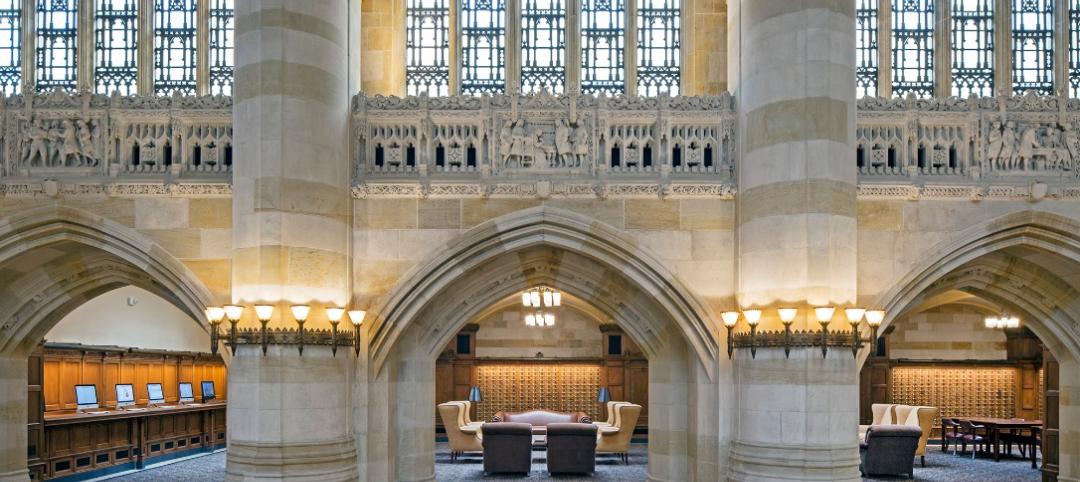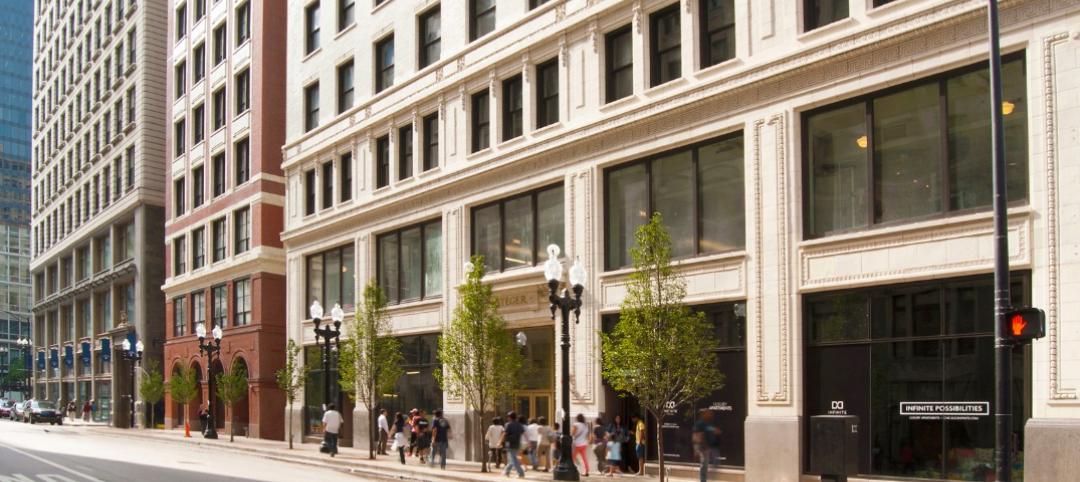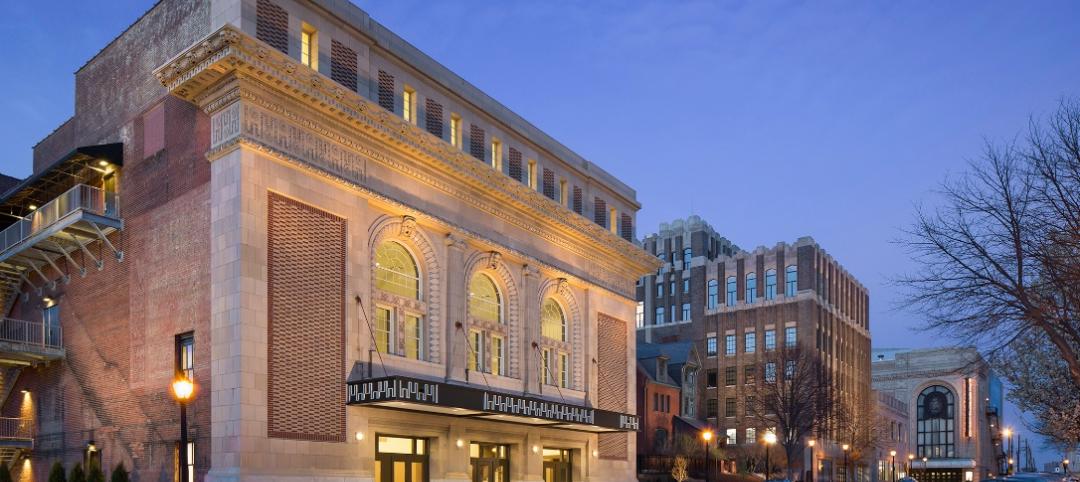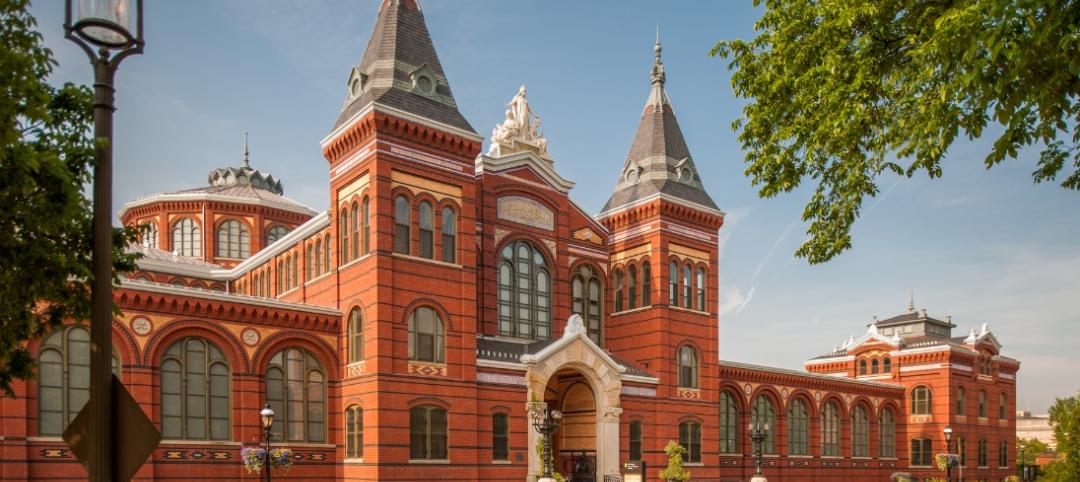The modification of the Columbus Metropolitan Library Hilliard Branch from a senior living facility clubhouse focused on two key principles that informed the design process: first, take advantage of existing infrastructure as design opportunities; and, second, form space and experience through strategic interventions.
The project team realized that the 60,000-sf space required simplification over addition. The existing senior living facility was broken up with a plethora of small rooms that served as exam rooms, salon services, dining spaces, and exercise facilities. The library required fewer but larger spaces to facilitate flexible programming, studying, lounging, browsing, and playing. Instead of gutting the building and creating entirely new spaces through additive processes, the library’s rooms were created by editing what was already in place.
Similarly, most of the existing MEP and structural infrastructure was saved by the project team, led by architect DesignGroup, having designed the library to blend seamlessly with what was already built. Infrastructure elements were designed to become landmarks throughout the space to enhance wayfinding.
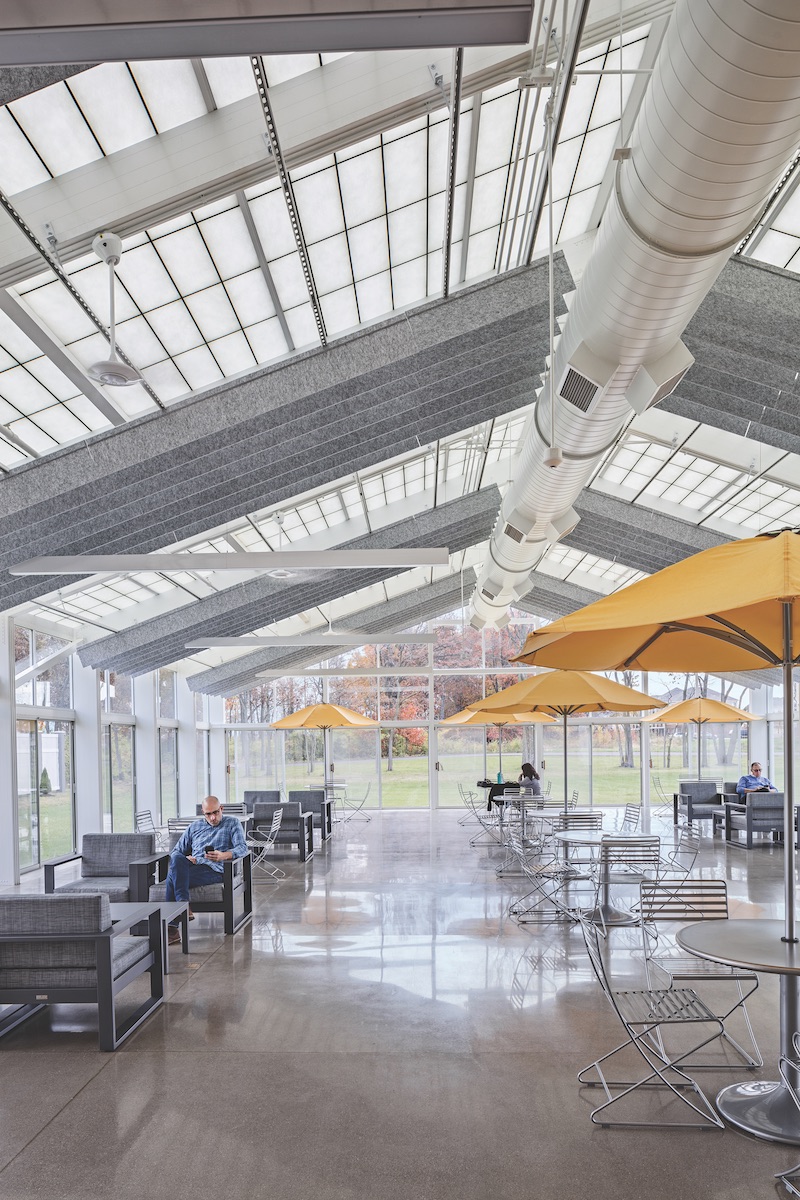 A three-season pavilion provides a glass-encased connection to the outdoors.
A three-season pavilion provides a glass-encased connection to the outdoors.
Staff work areas on the first floor were integrated with an existing service elevator. Walls with structural lateral braces were reused and reimagined to define zones in an otherwise open plan. The structural braces were reclad to maintain their structural integrity while opening sight lines for staff and patrons. An existing lower slab area and ramp create a children’s programming zone with tiered seating.
Some elements of the new library, however, couldn’t be integrated with existing infrastructure and needed to be completely redesigned and rebuilt. A deteriorating pool enclosure was redesigned to become the library’s new reading room. A large floor opening was cut in the “Welcome Zone” to create a dramatic entry space and bring light deep into the building from large windows on the second floor.
Daylight was brought into the building throughout without significant alteration to the building envelope, creating bright spaces in what was a dark, difficult-to-navigate building.
Interior glazing maintains the daylight and views while defining spaces for teens, quiet study, and group study. It also creates lighting zones in larger public spaces to help guide visitors to and through amenity spaces. The majority of the walls are left white and use splashes of color and wood to define programmatic elements.
BRONZE AWARD WINNER
BUILDING TEAM DesignGroup (submitting firm, architect) Columbus Metropolitan Library (owner) SMBH (SE) Korda Engineering (MEP) Turner Construction Company (CM) DETAILS 60,000 sf Total cost $13 million Construction time August 2017 to May 2018 Delivery method CM at risk
Related Stories
Reconstruction Awards | Nov 11, 2016
Exclusive Chicago club re-emerges as a boutique hotel
Built in 1893 for the World’s Columbian Exposition, the CAA was an exclusive social club founded by leading figures in American sports and commerce.
Reconstruction Awards | Dec 1, 2015
Massive Chicago parking garage gets overdue waterproofing
Millennium Lakeside Garage, the largest underground parking facility in the U.S., hadn’t been waterproofed since the 1970s. The massive project took nearly 2½ years and 33,554 man-hours.
Reconstruction Awards | Nov 30, 2015
Washington Monument restored after 2011 East Coast earthquake
This restoration and repair project, which was completed under budget and eight days early (despite several setbacks), involved re-pointing 2.5 miles of mortar joints, repairing 1,200 linear feet of cracks, and installing 150 sf of Dutchman repairs. Construction took place from November 2011 to May 2014.
Reconstruction Awards | Nov 30, 2015
Denver's 107-year-old seminary campus modernized
The scope of the project included the seminary dorms, library, and chapel, all of which posed their own set of obstacles.
Reconstruction Awards | Nov 24, 2015
Center of I.M. Pei-designed plaza part of Washington redevelopment
The L’Enfant Plaza, a three-story below-grade mall, was renovated to include a new glass atrium pavilion and a 40-foot-long, interactive LED.
Reconstruction Awards | Nov 24, 2015
Manhattan's first freestanding emergency department a result of adaptive reuse
The Lenox Hill Healthplex, a restoration of the Curran O’Toole Building, has glass-block walls and a carefully preserved exterior.
Reconstruction Awards | Nov 19, 2015
Nave restored at Yale’s Sterling Memorial Library
Turner Construction and Helpern Architects revived the 150-foot-long nave, which was embellished with stained glass windows by G. Owen Bonawit, stone carvings by René P. Chambellan, and decorative ironwork by Samuel Yellin.
Reconstruction Awards | Nov 19, 2015
Infinite Chicago redevelopment bridges past to present
The renovation of three historic downtown buildings—the Gibbons and Steger Buildings and Pickwick Stables—includes a multi-level concrete walkway connection.
Reconstruction Awards | Nov 18, 2015
Sun Theater serves the youth of St. Louis
Lawrence Group and property owner TLG Beaux Arts raised $11 million to restore the 26,000-sf theater into a modern performance venue.
Reconstruction Awards | Nov 17, 2015
Smithsonian Institution’s Arts and Industries Building again an exposition and museum space
After removing decades’ worth of unfortunate additions to expose 17 historic interior spaces for the National Historic Landmark, the Building Team zoned in on the client’s key concern.


